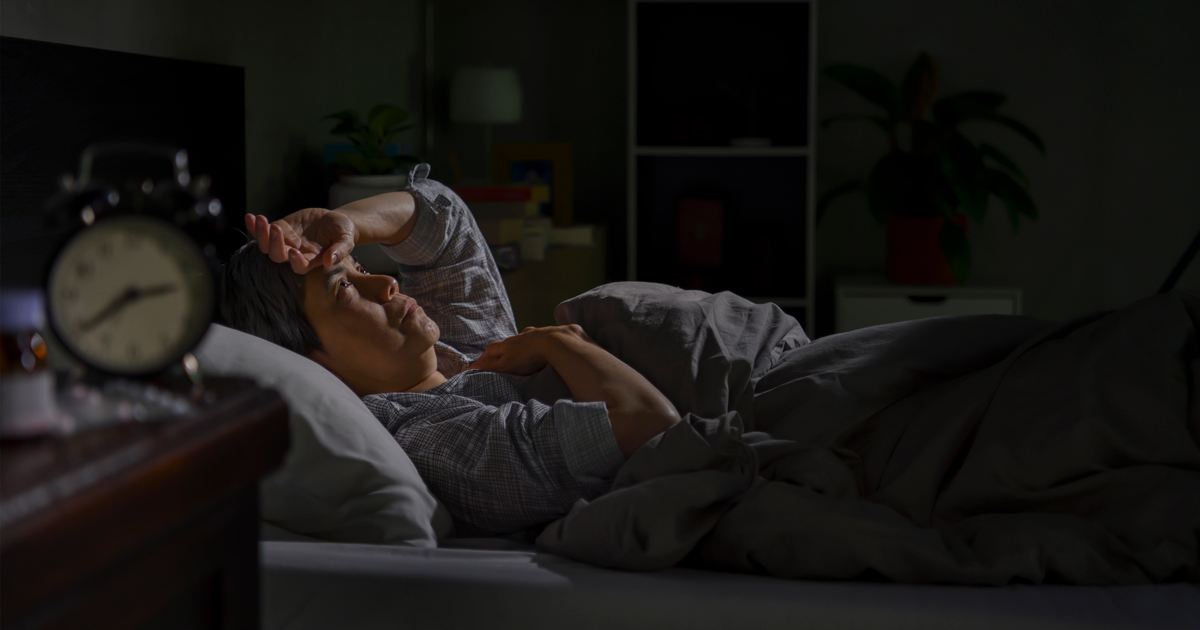Can't sleep? What to know about melatonin supplements

Tossing and turning all night? Reaching for yet another coffee or energy drink to stay awake at work? Dealing with jet lag or working the night shift?
We know getting a good night's rest is essential to our physical and mental well-being, so what can we do when we're desperate for a good night's sleep? You may wonder if the melatonin you've seen on the pharmacy shelf is a good solution. Here's what you need to know.
What is melatonin and how does it work?
Often thought of as the sleep hormone, melatonin is something our bodies make naturally within our brain. It helps to regulate our internal clock and natural sleep-wake cycle. Although not fully understood, research also suggests additional roles melatonin may play in the body beyond sleep.
How much melatonin is produced and when it's released directly connects to the time of day. "As the sun goes down melatonin levels rise, preparing our body for sleep," explains Emily Hill Bowman, MD, Nebraska Medicine internal medicine doctor. "During the day, melatonin is suppressed due to light and physical activity." The result? Exposure to light at night and other factors can block melatonin production, making it harder to fall asleep.
What about melatonin supplements?
A melatonin supplement is a synthetic form of what our body produces naturally and can be helpful for those who have insomnia, jet lag, certain sleep disorders and more. "Melatonin supplements are a viable option to help people get their sleep cycle back on track," adds doctor Dr. Hill Bowman. "It is generally well tolerated and can be a good thing to try before resorting to a prescription sleep aid. Start with a low dose, typically 1 to 3 milligrams about a half-hour before bedtime. You can go up to 5 milligrams, but avoid higher doses because it can affect your body's natural melatonin production."
Consider it a short-term solution
For some, a melatonin supplement can lose its effectiveness after a while. If used for a long duration, it's possible to develop a dependence on it. It's a good idea to talk to your doctor if you still have trouble sleeping after taking a supplement for more than a few weeks.
Melatonin gummies vs. other forms
You may notice melatonin gummies, pills, lozenges, spray, drinks and other delivery systems. There doesn't seem to be much difference in effectiveness, but is more a personal preference. If you have allergies, sensitivities or are vegan, watch for unwanted fillers, additives, coloring, preservatives and sugars.
Safety and side effects
Short-term, low-dose use is generally safe for most people, but research on the long-term safety of melatonin use is lacking. In the United States, melatonin is considered a dietary supplement by the Food and Drug Administration (FDA), meaning it's regulated less strictly than prescriptions and over-the-counter drugs.
General side effects may include:
- Vivid dreams or nightmares
- Daytime drowsiness
- Low mood or mild anxiety
- Headache
- Nausea
- Dizziness
If you have any health conditions or are taking prescription medications, unwanted interactions can occur. Discuss any medications you are currently on with your primary care doctor before taking supplements, including melatonin.
Melatonin for kids
Children may have trouble falling asleep for many reasons. While there are melatonin formulations for children on the market that seem generally safe, it's best to get a thorough evaluation for any potential causes with your child's pediatrician before use. The long-term impact of melatonin use in children and teens is not yet known. The safest route is to always start with healthy sleep practices: age-appropriate and consistent bedtimes, a daily bedtime routine, no caffeine and no electronics or screens before bedtime. When insomnia becomes chronic or is accompanied by neurodevelopmental disorders, melatonin can be a beneficial part of a treatment plan but not a stand-alone solution.
Do your research
With melatonin supplements, what you see may not always be what you get. Because it's considered a food supplement, manufacturers are not necessarily required by law to list all the ingredients or state how it was made. In 2017, the Journal of Clinical Sleep Medicine published a study that analyzed 31 melatonin supplements and found a vast amount of variation from the melatonin content listed on the label. Many were found to contain significantly more or less than the claimed amount.
Insomnia issues? Try these healthy sleep tricks first
"If you struggle with insomnia, we always recommend nonmedication treatments first," says Dr. Hill Bowman. "Getting a good night's sleep requires healthy routines that get your body prepped for it. We also discuss a behavior health referral because speaking with a health therapist or counselor can offer excellent techniques that can improve sleep quality."
Try these healthy habits to help you get a good night's rest:
- Stick to a standard time for bed and time to get up every day
- Incorporate a calming bedtime routine to prepare your body and mind for sleep
- Ditch all electronic devices an hour before bedtime, as they may suppress the body's natural release of melatonin
- Invest in a comfortable bed, reserved for sleeping (not working or watching television)
- Create a dark, cool and relaxed environment
- Exercise during the day, preferably earlier in the day
- Stop caffeine intake after lunch
- Get exposure to daytime light
While we may be tempted to reach for a quick fix to get those needed ZZZs, start with healthy sleep habits first. Melatonin can be a viable option to help you get back on track in the short term, but if your sleep disturbances become chronic, talk with your doctor about all your options.
Make an appointment at 800.922.0000 or schedule online to talk about it with a primary care provider.





